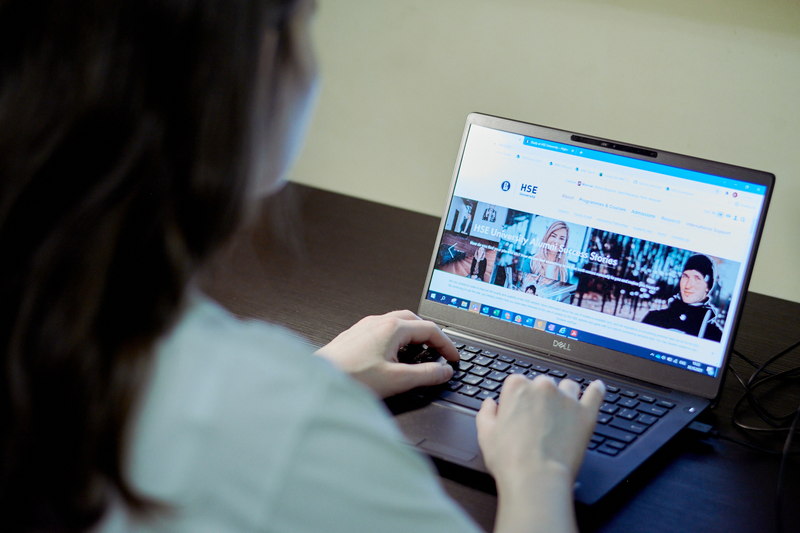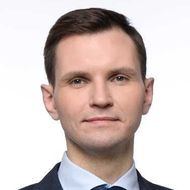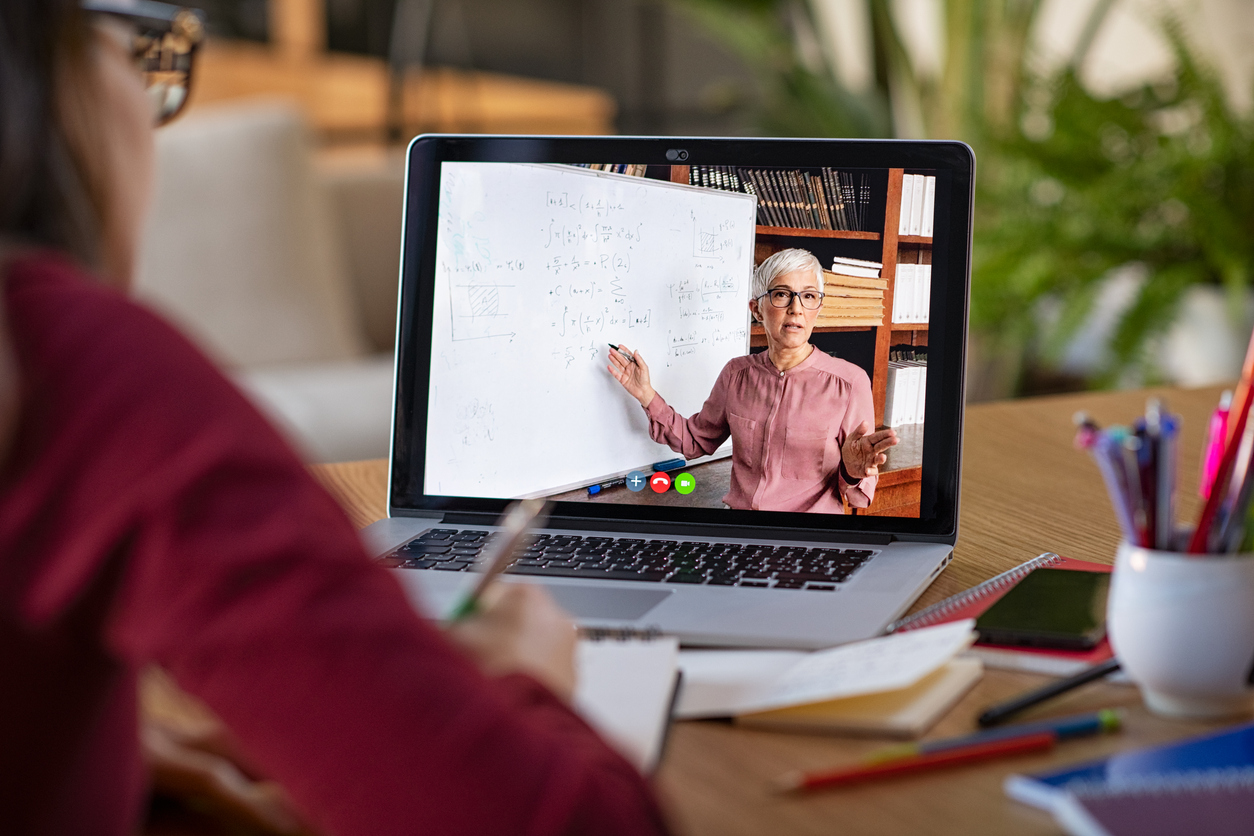The Digital Professors Programme: Five Years of Developing International Academic Collaboration

For the past five years, the Digital Professors programme has successfully brought leading international experts from foreign educational and research institutions, global companies, and organisations to HSE University to teach in a remote format. Applications to engage remote international scholars for the 2025/26 academic year are now open. HSE Vice Rector Alexey Koshel spoke about the results and distinctive features of the programme.

Alexey Koshel
— What is the main goal of the Digital Professors programme for the university as a whole and for individual HSE departments?
— The programme aims to foster international collaboration with leading researchers and lecturers from foreign educational and research institutions, and as of this year, also with practitioners from leading international companies and organisations. While this is the primary goal set out in our regulations, it is by no means the only one. The programme also supports the development of the university’s international academic reputation and expands opportunities for global academic partnerships. For individual departments, it provides access to highly qualified international scholars to design and deliver courses requiring advanced content and specialist knowledge. Involving international lecturers also broadens students’ horizons: they gain first-hand insights into foreign expertise, develop global thinking, and deepen their understanding of the subjects they study. One undeniable advantage of having digital professors involved in teaching is the strengthening of the international academic environment and the promotion of cultural tolerance, alongside a growing interest in the experiences and knowledge of other countries.
— When was the programme launched, and what results have been achieved so far?
— The programme was formally launched in 2020, during the COVID-19 pandemic and the global shift to digital learning. It is worth noting that HSE had already been involving international scholars in distance teaching on an ad hoc basis prior to that. The pandemic simply accelerated the development and formalisation of the programme. This is a clear example of how a challenging situation helped establish an important and much-needed initiative at HSE. Over the five years of the programme’s operation, more than 200 international scholars from over 150 top universities around the world have collaborated with HSE. These include the University of Oxford (UK), the London School of Economics and Political Science (UK), the University of Strasbourg (France), the Free University of Brussels (Belgium), the City University of New York (USA), the University of Aberdeen (UK), KU Leuven (Belgium), the University of Hong Kong, the University of Campinas (Brazil), and others.
— Can you tell us about the key features and requirements of the Digital Professors programme, and the conditions for departments looking to invite remote international scholars?
— A key feature is that the initiative to engage international scholars comes directly from HSE’s academic and research departments. They identify the need for a remote international specialist, discuss potential cooperation with candidates, and submit their applications through an online form. Any academic or research unit from any HSE campus can apply to host a remote international scholar (learn more in Russian). The programme is run on a competitive basis. Once applications are submitted, they are reviewed by the university’s Selection Committee, and if approved, a remote civil-law agreement is signed with the specialist. Priority is given to applications that involve remote international scholars in state-funded degree programmes. Applications for commercial (fee-paying) programmes are only considered if the inviting department provides co-financing.

It is important to note that any international scholar engaged for remote work under the programme must not have any existing employment or civil-law contractual relationship with HSE University that involves full or partial presence within the Russian Federation. Furthermore, under current legislation, a participant of the Digital Professors programme may only enter the Russian Federation if the model of their engagement with HSE is changed.
— For what purposes can an HSE department invite a remote international scholar?
— Departments most frequently invite remote international scholars to teach academic courses to undergraduate and postgraduate students, to carry out ongoing assessment and examinations, and to supervise coursework, final theses, and dissertations. Starting this year, we have slightly expanded the scope of the programme to include practitioners from leading international companies and organisations. This has also broadened the format: it is now possible to conduct masterclasses and training sessions—especially relevant in disciplines such as creative industries, business and management, international relations, computer science, and others.
— When and how can a department apply to invite a remote international scholar under the Digital Professors programme?
— The current application round for inviting remote international scholars for the 2025/26 academic year is already open. Applications must be submitted electronically via the programme’s website (in Russian) by 2 June (inclusive) and will be reviewed at a Selection Committee meeting in June. Departments can also submit applications throughout the academic year on a rolling basis. However, if collaboration with a lecturer is intended to begin from Module 1 of the 2025/26 academic year, we recommend submitting the application now.
— Who makes up the Selection Committee and what do its members consider when making decisions?
— The Selection Committee, appointed by order of the rector, includes deans, vice rectors overseeing key university activities, and campus directors. As chair of the Selection Committee, I can say that each application is reviewed with great care, taking into account a wide range of factors: the candidate’s academic qualifications and professional experience, any previous successful collaboration with HSE University (if applicable), the proposed remuneration and its justification, among others. It is also important to be aware of certain specific requirements of the programme. For example, the teaching load indicated in the application must be substantial, and elements such as ongoing assessment and the final exam must not exceed 20% of the total classroom hours. Other detailed requirements can be clarified by colleagues from the Centre for International Faculty Recruitment and Review.
— How is the renumeration for a remote scholar determined?
— When submitting an application, the department calculates the proposed remuneration based on the approved rates set under the Digital Professors programme. These rates are determined by the scholar’s qualifications and calculated per academic hour. It is important to note that the stated remuneration includes both Unified Social Tax (UST) and Personal Income Tax (PIT). During the application review, the Selection Committee may adjust the remuneration or request co-financing from the department if there are objective grounds for doing so. The final remuneration for each candidate is approved by the Selection Committee.
— What would you recommend departments pay particular attention to when submitting applications under the programme?
— First of all, I encourage department heads and academic programme leaders who have not yet engaged remote international scholars through the Digital Professors programme to take advantage of this opportunity. The programme has great potential and offers significant opportunities to enhance the quality of course delivery and academic programmes, as well as to expand international collaboration.
Secondly, it is essential to pay close attention to the details and requirements of the programme—many of which we have discussed today. The Centre for International Faculty Recruitment and Review is always available to provide guidance on the application process and the programme conditions.
See also:
Recruitment Campaign 2025: How HSE Attracts Top International Talent
For nearly two decades, HSE University’s international recruitment programmes have brought highly qualified professionals from the global academic job market to Russia—from recent PhD graduates of leading universities to experienced international scholars. On September 1, 2025, the university expects 50 new international faculty and researchers to join its academic team.
Former French Ambassador Shares His Experience with HSE Students as a Digital Professor
As part of the ‘Digital Professors’ programme, HSE University invites international lecturers to work with students remotely. One of the programme’s participants is Dr Pierre Andrieu, lecturer at the Paris Institute of Political Studies (Sciences Po). At HSE University, he taught the elective courses ‘EU in the World’ and ‘New Challenges and Threats’ in 2021–2022. In his interview with the HSE News Service, Dr Andrieu talked about his diplomatic career, research interests, and interactive teaching.
‘In the Last 20 Years, Computer Modelling Has Become an Important Part of Cognitive Science’
As part of its Digital Professors programme, HSE University invites international lecturers to work with students remotely. One of the participants of the programme is Dr Ivan Ivanchei, Research Assistant of the Department of Experimental Psychology at Ghent University (Belgium). He conducted an elective course at HSE University entitled ‘Introduction to Computer Modeling of Cognitive Processes.’
‘Students Have Broadened Their Horizons and Made the First Steps in Financial Mathematics’
Cedric Bernardin from Université Côte d’Azur collaborated with HSE University as a Digital Professor in the second semester of the 2021/2022 academic year. He taught a course on MDP theory with finance applications at the Faculty of Mathematics. Prof. Bernardin shared his impressions of this experience with the HSE News Service.
‘I Admire HSE Students’ Eagerness to Learn, to Discuss, to Broaden Their Perspectives’
Robert Romanowski was a ‘Digital Professor’ at HSE University in November 2021. In his interview for the HSE News Service, he talked about the specifics of online teaching, his course on Strategic Branding, and the skills that are essential for marketing professionals today.


